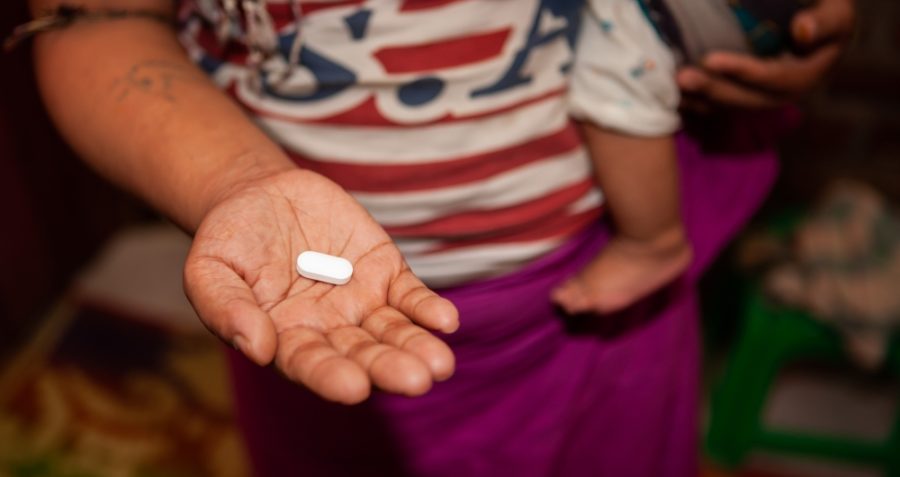Community-led responses save lives amid COVID-19
 © Gemma Taylor/Frontline AIDS 2018
© Gemma Taylor/Frontline AIDS 2018
At today’s pre-meeting for the 46th UNAIDS Programme Coordinating Board I spoke* about our partners’ experiences on the frontline and highlighted our call to action on HIV, TB and COVID-19.
And I want to thank UNAIDS colleagues for leadership and commitment to champion community-led responses and all the important work to support communities within the COVID-19 response. More than ever we need UNAIDS’ global visionary leadership to respond to the pandemic.
From India’s frontline
It is of key importance to acknowledge the critical role and heroic actions of communities, particularly outreach workers, in tackling COVID-19. Community-led organisaitons and groups are adapting their existing programmes to include COVID-19 awareness and prevention. They are also addressing the health, social and economic consequences, from gender-based violence to loss of livelihoods and lack of access to food.
Our partner, Alliance India, shares that in a countrywide lockdown frontline workers deliver food and medicines to those who struggle to travel to antiretroviral therapy centres, often in remote and hard to reach areas.
Gurmeil, a frontline worker from Rajasthan state, covers a 65 km journey on his bike in order to provide two months’ supply of antiretrovirals to Ashwani (name changed). The nearest antiretroviral therapy centre for Ashwani is 65 km away from his house, there is no public transport available and he presently uses a wheelchair. Ashwani’s wife is stuck in another district. Gurmeil manages to connect her with another outreach worker who delivers antiretrovirals to her. “I am happy that this family got their medication. I am a family person myself and it was my responsibility to help this family in this time of crisis,” says Gurmeil.
Rohit, eight years old, lives with his 65-year-old, hearing-impaired grandmother in Telangana state. The area where they live falls under the red zone where no public transportation is available. Grandmother is apprehensive and reluctant to receive the services at their doorstep due to fear of stigma and discrimination from the villagers and neighbours. The outreach workers coordinate with grandmother and she picks up three months supply of antiretrovirals from the outreach worker’s house. “It was a long journey for us. A lot of negotiations had to be carried out. Finally, when the antiretroviral medicine is handed over, I am content that the child will now continue the treatment,’’ says the outreach worker.
Our call to action
Around 200 civil society organisations have signed a call to action ** on HIV, TB and COVID-19 from Frontline AIDS, AIDS and Rights Alliance for Southern Africa, Global Coalition of TB Activists, TB People, and Stop TB Partnership .
Further action is needed to sustain progress on HIV and TB during the COVID-19 pandemic, to adapt HIV and TB programmes so that they can also address COVID-19 and to protect human rights.
We call on governments, donors and UN agencies to recognise the essential work that communities on the frontline of the HIV and TB responses are doing to tackle COVID-19 as well as uphold dignity and human rights for all people, particularly people who use drugs, lesbian, gay, bisexual and transgender (LGBT) people and sex workers, as well as adolescent girls and young women.
*A shorter version of this statement was delivered during the meeting.
**Our call to action is still open for sign ons.
Tags
Alliance IndiaCOVID-19HIV preventionIndiaTuberculosis (TB)

